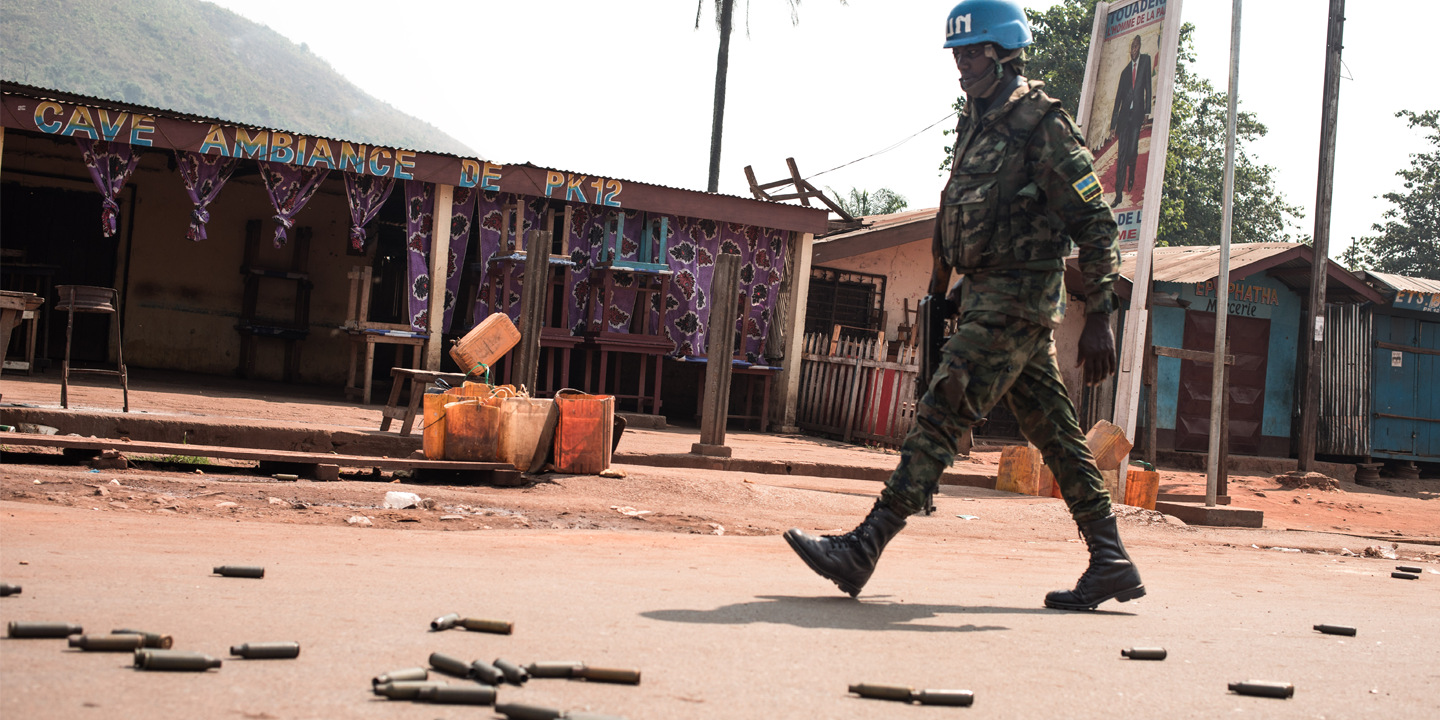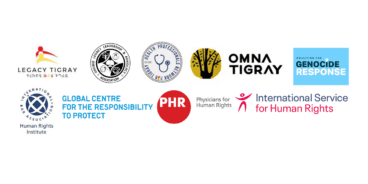

Atrocity Alert No. 235: Central African Republic, Ethiopia and Cameroon
Atrocity Alert is a weekly publication by the Global Centre for the Responsibility to Protect highlighting situations where populations are at risk of, or are enduring, mass atrocity crimes.
Armed groups attack capital of Central African Republic in attempt to overthrow election outcome
Earlier today, 13 January, a coalition of armed groups in the Central African Republic (CAR) mounted an attack on the outskirts of the national capital, Bangui. The armed incursion, in the north of the city, was repelled by CAR’s army, with the support of troops from the UN peacekeeping mission (MINUSCA). The attack is the latest in a campaign by a coalition of six armed groups – all of whom are signatories to the 2019 Political Agreement for Peace and Reconciliation – to disrupt the 27 December elections in CAR. Some of the groups are allied with former President François Bozizé, who is under UN sanctions and whose candidacy for the election was rejected by the Constitutional Court.
According to provisional results of the 27 December general elections, President Faustin-Archange Touadera was reelected with 53 percent of the vote. However, many opposition candidates have requested the election results be annulled, citing irregularities and low turnout. More than half of registered voters could not vote as many polling stations were closed due to pervasive insecurity, including attacks against election officials and candidates, and the deliberate destruction of voting materials. Having failed to prevent the election from taking place, the coalition of armed groups are now likely trying to isolate the capital and influence the final results.
Since December the coalition of armed groups has attacked and seized a number of smaller towns on their way towards Bangui. Ahead of election day, Liz Throssell, spokesperson for the Office of the UN High Commissioner for Human Rights, told journalists, “we are deeply alarmed by reports of escalating violence stoked by political grievances and hate speech, resulting in the forced displacement of civilians.” Over 30,000 people have fled to neighboring countries and 62,000 people have been newly displaced in CAR.
Armed groups have also disrupted the main trading and supply route to Bangui, depriving civilians of access to essential humanitarian aid and producing food shortages. Hundreds of trucks are stuck in Cameroon’s Douala seaport, which CAR depends upon for over 90 percent of the goods that it imports. Cameroonian authorities also reported that more than 250 foreign workers, the majority of them Chinese, have fled post-election violence and relocated to the border town of Garoua Boulay. The foreign workers claim that they have been threatened by armed groups who told them to leave or be killed.
Four UN peacekeepers have also been killed in clashes with armed groups since December. Deliberately killing UN peacekeepers constitutes a war crime under international law.
Armed groups that are part of the coalition that attacked Bangui this morning have a history of perpetrating atrocities, including killing civilians, rape, sexual slavery and deliberately destroying civilian infrastructure. The African Union and the Economic Community of Central African States should urgently assist MINUSCA and the CAR government in their attempts to end the ongoing violence. All perpetrators of atrocities and election-related violence in CAR must be held fully accountable for their crimes.
Satellite images reveal destruction of refugee camps in Tigray
Despite claims by Ethiopia’s federal government that fighting in the Tigray region officially ended on 28 November, recent UN reports and satellite images reveal that the destruction of infrastructure and widespread civilian displacement continues. Violence also continues around the cities of Mekelle, Shiraro and Shire, and in rural areas, constraining the delivery of life-saving aid to vulnerable civilians.
On 9 January Bloomberg released a report analyzing satellite images, revealing the destruction of infrastructure as recently as 5-8 January, including damage to two inaccessible Eritrean refugee camps, Hitsats and Shimelba. Images from Shimelba show scorched earth and the destruction of a World Food Programme facility, a school and a health clinic, while images from the Hitsats camp revealed destroyed or burning structures. It is not clear who is responsible for attacking the refugee camps, which would constitute a war crime, and grave fears exist regarding the fate of Eritrean refugees housed there.
On 7 January the UN Office for the Coordination of Humanitarian Affairs (OCHA) released a report, based on two joint assessment missions from 20-30 December, that also highlighted the dire humanitarian situation in Tigray. Ongoing insecurity, as well as bureaucratic hurdles, have restricted access to most of North Western, Eastern and Central Tigray, where an estimated 4.5 million people are in need of emergency food assistance, including 2.2 million internally displaced persons. OCHA also warned of “massive community transmission” of COVID-19 due to civilian displacement caused by the conflict. Only five of forty hospitals in the region are functional and witnesses have reported massive damage, destruction and looting of healthcare centers.
Dr. Simon Adams, Executive Director of the Global Centre for the Responsibility to Protect, said that, “the Ethiopian government is led by a Nobel Peace Prize winner, Prime Minister Abiy Ahmed. The very least he should do is guarantee unfettered humanitarian access to all vulnerable populations in Tigray and ensure their full protection. States with significant ties to Ethiopia should withhold all military support to the government until independent investigations take place regarding the alleged destruction of refugee camps and other potential war crimes. The international community has to increase the political cost of ongoing human rights violations in Tigray.”
African Nations Football Championship commences in Cameroon despite armed conflict
Starting this Saturday, 16 January, Cameroon will host the African Nations Football Championship. The outbreak of the COVID-19 pandemic postponed the tournament, initially scheduled for April 2020. Matches will now be played in numerous locations across the country, including in the Anglophone majority town of Limbe, despite an ongoing armed conflict between the government and armed separatist groups in the Anglophone north-west and south-west regions.
While the President of the Cameroon Football Federation in the south-west region, Thomas Ndive Mulungo, claimed that people are “anxiously waiting for the tournament to begin,” armed separatist groups have vowed to disrupt games and warned teams not to travel to the matches. “The tournament is adding unnecessary risks to an already deteriorating security situation in the Anglophone regions. It is, ultimately, vulnerable civilians who will bear the brunt of this,” said Juliette Paauwe, Senior Research Analyst at the Global Centre for the Responsibility to Protect.
Fighting in the Anglophone north-west and south-west regions, which started in 2016, continues unabated. On 6 January a military convoy was ambushed by armed separatists in the north-west region, leading to the deaths of four army officers and a senior government official. On 10 January government forces reportedly killed at least eight civilians in Mautu village, south-west Cameroon, while searching for armed separatists. It is alleged that government forces retaliated against the local population for allowing separatists to live in the village.
Meanwhile, Boko Haram continues to pose a threat to civilians in the Far North region. On 8 January at least 13 civilians, including 8 children, were killed after a suspected Boko Haram suicide bomber attacked the village of Mogozo.
Despite escalating violence during 2020, both the African Union (AU) and UN Security Council (UNSC) have failed to adequately respond to the deadly conflict in Cameroon. After more than three years of violence –including the killing of 3,000 people and the displacement of 750,000 civilians – the AU and UNSC must help establish a comprehensive ceasefire in the Anglophone regions. The AU and UNSC should also facilitate an inclusive dialogue between the government and separatist groups, mediated by a neutral player on neutral territory.

